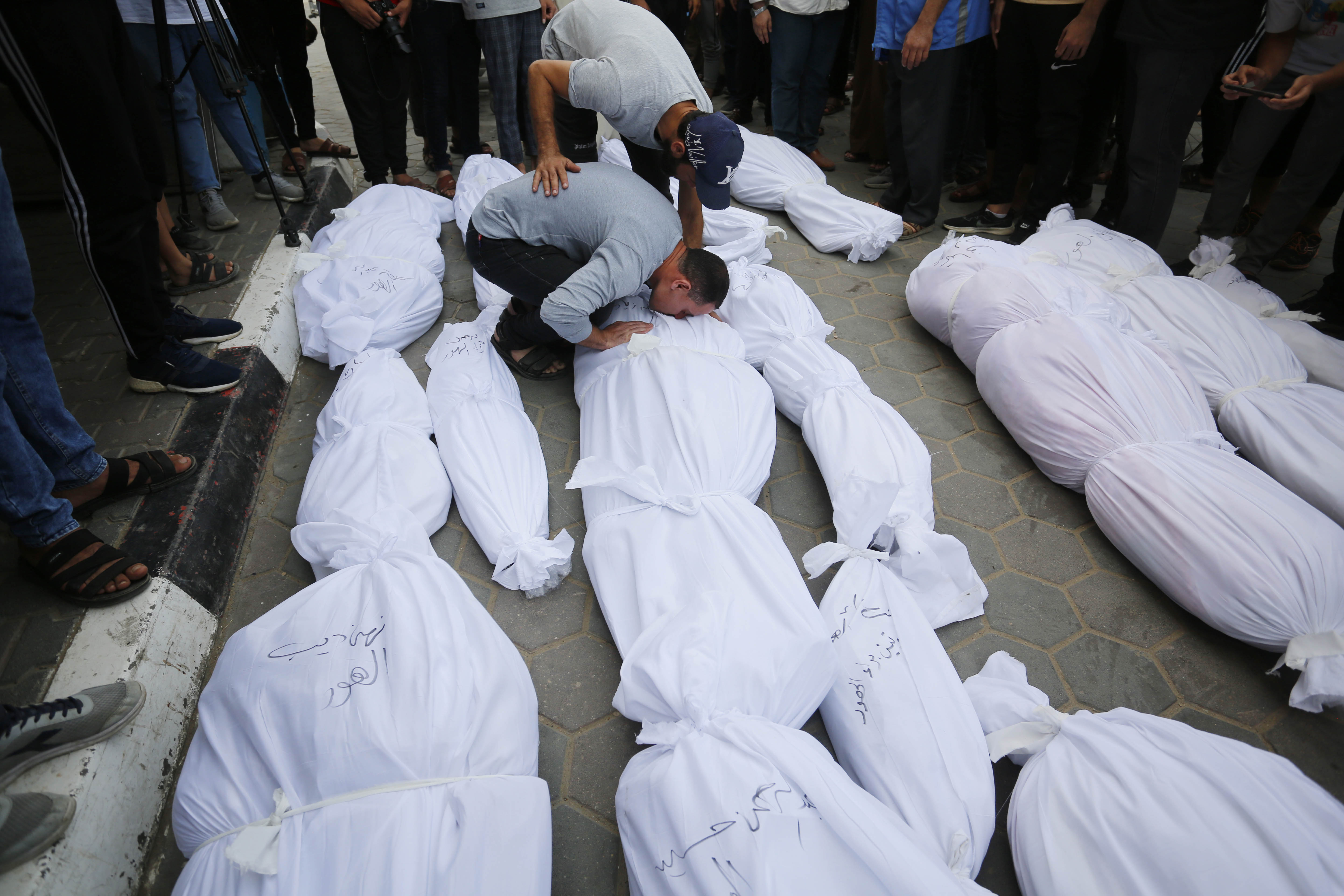
It took one tweet over the weekend for cracks to emerge within the Israeli political establishment.
Just after midnight on Sunday, Prime Minister Benjamin Netanyahu wrote that he had never been informed about warnings of Hamas’s assault on Israel on October 7. Netanyahu instead seemed to place the blame for the attack, where at least 1,400 people were killed, on his army and intelligence chiefs. They had assessed prior to the attack that Hamas “was deterred and ready for a settlement”, he noted.
The statement caused an uproar. Political leaders slammed Netanyahu for playing politics while the country was in the midst of a difficult military campaign inside Gaza. The outrage was such that the prime minister deleted the tweet, and in an unusually sober tone, apologised for his words. “I was wrong,” he said.
Experts say the episode confirmed a widening rift within the political and military establishment, one that questioned Netanyahu’s leadership and his capacity to navigate the country through war without prioritising his own interests over national security.
“To say that he was out of order would be the understatement of the year,” said Yossi Mekelberg, associate fellow with the Middle East and North Africa Programme at Chatham House.
“This is a very difficult military campaign so you want a responsible prime minister and there is not a single person [in the government] that trusts Netanyahu – that’s the main issue for this cabinet,” Mekelberg said.
Soon after October 7, Netanyahu formed an emergency war cabinet by extending the Israeli governing coalition to a number of former senior military officers, drawn from the ranks of the opposition.
One of them was Benny Gantz, a former defence minister, who swiftly demanded Netanyahu retract his controversial post while showing full support to the army and the Shin Bet, Israel’s domestic intelligence agency.
A flurry of criticisms from other leaders followed. “[Netanyahu] is not interested in security, he is not interested in hostages, only politics,” said opposition lawmaker Avigdor Lieberman, once Netanyahu’s defence minister. Israel army’s top spokesperson Daniel Hagari declined to comment. “We are at war,” he said.

The fiery exchanges were the latest signs of tension within Israel’s political establishment – including within the war cabinet – as it grapples with the aftermath of one of the country’s biggest intelligence failures.
Many in the country’s security apparatus have admitted shortcomings, but not Netanyahu. Before the stormy tweet, the Israeli leader held a news briefing on Saturday where he dodged the question on whether he was responsible, saying that everybody will have to “give answers to hard questions, including me”, once the war is over.
“This is just the tip of the iceberg of what is going to be the Israeli establishment once the conflict is over,” said Alon Lien, former director of Israel’s Foreign Ministry. “He is preparing the ground for his argument,” Lien said.
Ties between the prime minister and a wide share of Israel’s public opinion have already been tested. The war came on the heels of a political crisis as an ultra-nationalist far-right government led by Netanyahu pushed for controversial reforms that curtailed the powers of the judiciary and that opponents have criticised as a threat to democracy. Tens of thousands of protesters have taken to the streets for months, pushing back against the judicial overhaul.
Among the opponents to the reform were military reservists who threatened to refuse to report for volunteer duty. Some critics argue that the magnitude of the protests was such that it impacted the military’s readiness and capability.
Since October 7, thousands of reservists have embraced arms to join the fight against Hamas – the country’s biggest military challenge since the October 1973 war against Egypt and Syria.
On Monday, the Israeli army said troops and armoured vehicles were pushing deeper inside Gaza as part of the “second phase of the war”. It comes after more than three weeks of relentless bombardments of the besieged enclave that have killed more than 8,000 Palestinians and triggered a humanitarian catastrophe.

But analysts say the unity within Israel against Hamas doesn’t necessarily extend to support for Netanyahu’s government itself.
“This government had already lost the confidence of a significant sector of the society before October 7 and it hasn’t particularly expanded its public base of support since then,” said Mouin Rabbani, co-editor of Jadaliyya and non-resident fellow at the Center for Conflict and Humanitarian Studies.
According to a poll by the Israeli Democracy Institute released last week, trust in the government collapsed to a 20-year low with 20 percent of Israelis saying they trusted Netanyahu’s cabinet – eight percentage points lower compared with June.
Still, Netanyahu is known for his political survival skills. Israel’s longest-serving prime minister first took office in 1996, and has been in power for 13 of the last 14 years.
“There is widespread opposition to him and his government’s conduct, but this shouldn’t get us blind to the fact that he also has a deep reservoir of public support,” Rabbani said.
And though the war cabinet might be divided, expanding the government to include senior military members – as Netanyahu has done – could still serve his interests politically, he added.
It’s a move that might not be aimed only at expanding his political base, Rabbani said, but could also help him to more effectively deflect responsibility to the security establishment for potential military failures once the war is over.







